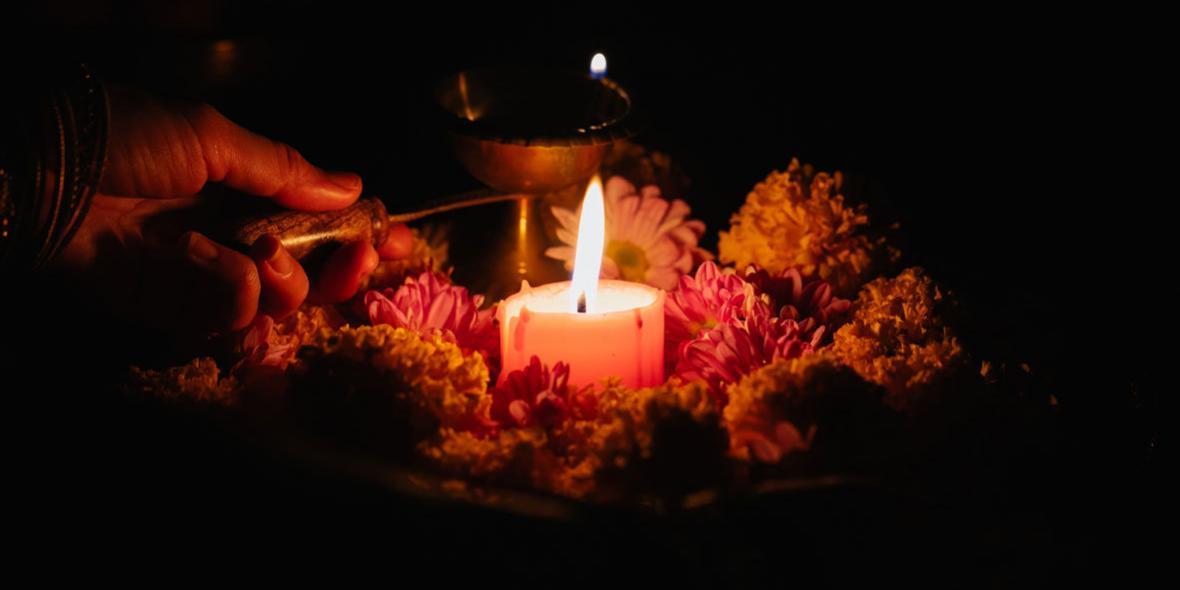We are in the process of developing a new course called ‘Living Well to Die Well’ and as part of this process I have been looking at the evidence base for compassion meditation in relation to the process of dying. This is in relation to the person who is dying, the bereaved and also those who work with people who are dying.
Garcia et al (2021) is a systematic review of self-compassion in palliative care. It found that for patients, self-compassion was association with reduced stress, anxiety, shame, depressive symptoms, fear of cancer recurrence and loneliness. It also found that self-compassion was associated with increased social capital, self-soothing, mindfulness, compassion, causal reasoning ability psychosocial and spiritual wellbeing, legacy, courage and commitment. For health care professionals it was associated with increased capacity for self-care, mindfulness and a professional quality of life and a decrease in perceived burnout risk and secondary traumatic stress.
Afrashteh et al (2021) looks at the mediating role of self-compassion in psychological well-being and death anxiety among breast cancer survivors during the Covid 19 pandemic. They found that depression and anxiety were positively correlated with death anxiety and that self-compassion was negatively correlated with death anxiety. As a result they recommend self-compassion as a treatment strategy to improve the psychological wellbeing of cancer patients.
Mills et al (2017) is a narrative review of palliative care professionals care and compassion for self and others. This paper identified four themes:
- Importance of self-care;
- Awareness, expression and planning, which are all important aspects of self care:
- Awareness relates to the suffering of others as well as ones’ own emotional responses and suffering;
- Expression includes activity such as supervision, debriefing and creative outlets such as writing poetry; and
- Planning involves making plans for self care;
- Dimensions of self-care, including physical, emotional, cognitive, relational and spiritual; and
- Balanced compassion, meaning a balance between compassion for self and compassion for others, with both considered equally important.
When I looked into what the research said about what it would take to die well. Zamen et al (2021) is a systematic review of systematic reviews on the conditions for a good death. This review found that common themes were:
- Dying at a preferred place;
- Relief from pain and psychological distress;
- Emotional support from loved ones;
- Autonomous treatment decision making;
- Avoidance of futile life-prolonging interventions and of being a burden to others;
- Right to assisted suicide or euthanasia;
- Effective communication with professionals; and
- Performance of rituals.
One aim of our Living Well to Die Well course is to build a compassionate community who will be able to support each other in making end of life decisions and to provide emotional and spiritual support.
Proulx et al (2004) is a review of twenty six articles on dying with dignity from the fields of nursing, medicine, ethics, psychology and sociology. It identifies two important aspects to dying with dignity, which are:
- the intrinsic unconditional quality of human worth; and
- experiencing and the external qualities of physical comfort, autonomy, meaningfulness, usefulness, preparedness and interpersonal connection.
It also suggests that being the ‘good patient’ compliant with the wishes of society, family and health care professionals may lose the opportunity of dying with dignity. It identifies the characteristics of a good death as including concepts such as peacefulness, physical comfort, autonomy, preparedness, connectedness with loved ones, awareness, discretion, meaning and acceptance.
Although, there is not much evidence, a theme is emerging from the research that self-compassion, which will be a key element of our Living Well to Die Well course, is an important factor in facing death and dying well. Cultivating self-compassion put us in touch with the intrinsic unconditional worth of ourselves as human beings identified as important for a dignified death in Proulx et al (2004). It can also help us to be authentic and challenge the pressures on us to be the ‘good patient’. As described in Garcia et al (2021) cultivating self-compassion can help us to develop the qualities that will support us in dying well. I know from my extensive work on practicing and teaching compassion, that self-compassion also enables us to live well!
In the videos below Heather and Jacky talk about the new Living Well to Die Well Course and their own personal experiences of bereavement and end of life.
Heather Regan-Addis teaches on the Masters Degree courses that the Mindfulness Association partners on with the University of Aberdeen (Studies in Mindfulness) and with the University of West of Scotland (Teaching Mindfulness and Compassion).
References
Afrashteh et al (2021) https://bmcwomenshealth.biomedcentral.com/articles/10.1186/s12905-021-01533-9
Garcia et al (2021)
Mills et al (2017) https://www.magonlinelibrary.com/doi/abs/10.12968/ijpn.2017.23.5.219
Proulx et al (2004) https://journals.sagepub.com/doi/abs/10.1177/104990910402100209
Afrashteh et al (2021) https://bmcwomenshealth.biomedcentral.com/articles/10.1186/s12905-021-01533-9
Zaman et al (2021) https://www.thelancet.com/journals/lanhl/article/PIIS2666-7568(21)00097-0/fulltext


